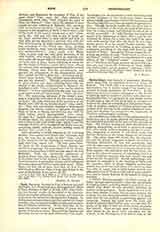

Esch (ESCHIUS), NICOLAUS VAN, a famous mystical theologian, b. in Oisterwijk near Hertogenbosch (Boisle-Duc), Holland, in 1507; d. July 19, 1578. After finishing his classical studies in the school of the Hieronymites, he studied philosophy, theology, and canon law at Louvain, but refused to take his doctor’s degree. In 1530 he was ordained priest, and then settled in Cologne in Order to devote himself to higher studies and the practice of Christian perfection. At the same time he became the private tutor of a number of young men, mainly university students. Blessed Peter Oanisius and Lawrence Surius are the most celebrated of his pupils. In Cologne, too, he contracted a close friendship with several members of the Carthusian Order, among whom Johann Landsberger, Gerhard Hamontanus, and Theodorich and Bruno Loher are worthy of special mention. Though his feeble health did not allow him to become a member of the order, he lived in the monastery, for a time at least, and followed its rule of life as closely as possible. In 1538 Nicolaus was appointed pastor of the Beguinage at Diest; after a year he surrendered his charge for a time, but took it up again with such success that after his death he was commonly spoken of as the saintly Father Eschius. He was also instrumental in founding several diocesan seminaries according to the rules laid down by the Council of Trent. Among his literary works the following are worthy of note: “Introductio in vitam introversam”, which is really an introduction to a new edition of the “Templum animae” (Antwerp, 1563 etc.); “Exercitia theologiae mysticae, seuexercitia quaedam pia, quae compendio hominem ad vitam perfectam instituendam juvare possunt” (Antwerp, 1563).
A. J. MAAS

